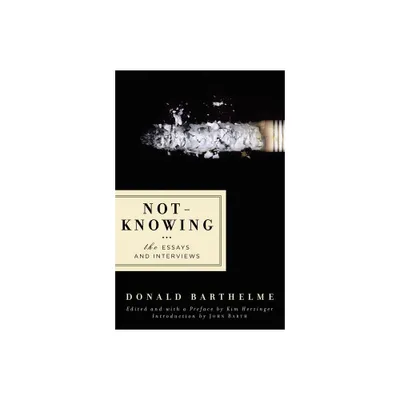Home
An Analysis of Knowing
Loading Inventory...
Barnes and Noble
An Analysis of Knowing
Current price: $140.00


Barnes and Noble
An Analysis of Knowing
Current price: $140.00
Loading Inventory...
Size: Hardcover
*Product Information may vary - to confirm product availability, pricing, and additional information please contact Barnes and Noble
First published in 1958, this book focuses on the meaning, interpretation, and use of the verb ‘to know’. In our daily lives we are often claiming to know this or not to know that; and it is not therefore surprising that the verb has played a major role in philosophical speculation from Plato down to Bertrand Russell. This book analyses the varying meanings of ‘know’ in its different operational roles: knowing Jones seems to have a different sort of logic from knowing French or from knowing what to do – and equally from knowing that the earth is round and from knowing how to read music. Knowing something is also different from merely believing it.
The main purpose of this book is to elucidate, in a new and original way, this whole question of the logical behaviour of ‘know’; but its further and no less important purpose is to show how, once we have grasped the way in which certain key ‘know’-statements function, a number of philosophical disputes may be discussed more fruitfully and settled more expeditiously. Some of the analyses offered will be regarded as controversial and will undoubtedly provoke discussion. The style is lucid and economical and technical terms are reduced to a minimum. This work is intended not only for the professional philosopher and the university student, but also for the general reader who is interested in the methods of modern philosophical analysis.
The main purpose of this book is to elucidate, in a new and original way, this whole question of the logical behaviour of ‘know’; but its further and no less important purpose is to show how, once we have grasped the way in which certain key ‘know’-statements function, a number of philosophical disputes may be discussed more fruitfully and settled more expeditiously. Some of the analyses offered will be regarded as controversial and will undoubtedly provoke discussion. The style is lucid and economical and technical terms are reduced to a minimum. This work is intended not only for the professional philosopher and the university student, but also for the general reader who is interested in the methods of modern philosophical analysis.


















